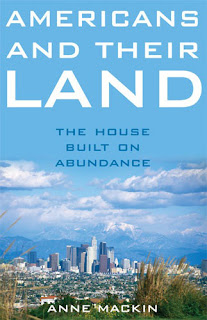Throughout our history, rumors of good farmland, whispers of gold, and ads for cheap land or housing called us across the continent or out to the suburbs. Again and again, Americans moved to resource-rich areas where people without money or connections could find a living, or an affordable home.
But as more people arrived in these less-settled areas, taking up more land and other resources, the race for resources intensified. In those more competitive races, the advantages of the wealthy and well-connected always won, causing local inequality to rise–again and again, in town after town, and region by region.
Now, as Boston commuters move to New Hampshire, and New York’s suburbs stretch to Pennsylvania, even the exurban frontier is closing. For 35 years, American inequality has risen steadily. Large corporations and industry use resources in ways that harm America citizens–taking or polluting land and water–while their influence over government grows.
Did our young nation depend too heavily on its natural abundance to solve social and economic problems?
Is our Democracy fatally flawed or can we legislate remedies?
“Americans and Their Land . . . is a critical essay and invaluable primer…”
–Harvard Design Magazine
“Lucidly written…”
–The Professional Geographer
“Mackin has a gentle wisdom about subjects generally frought with ideology.”
–Urban Land
"Anne Mackin has written a great book..."
—Journal of Social History
For more information on Americans and Their Land, see the University of Michigan Press website.

